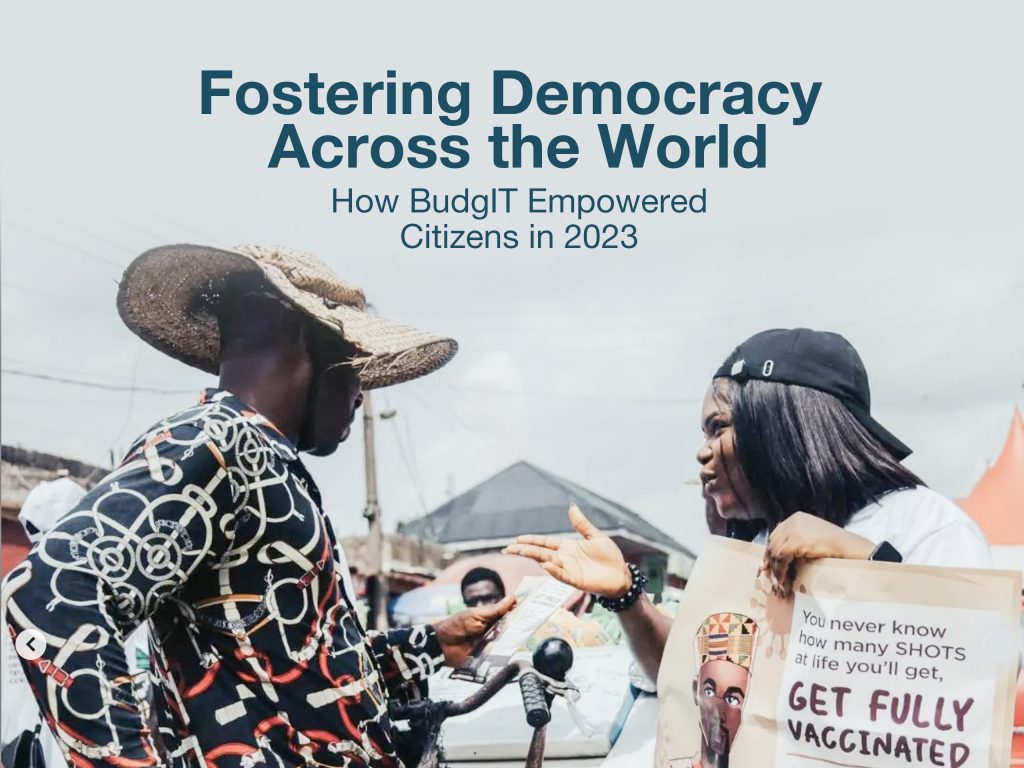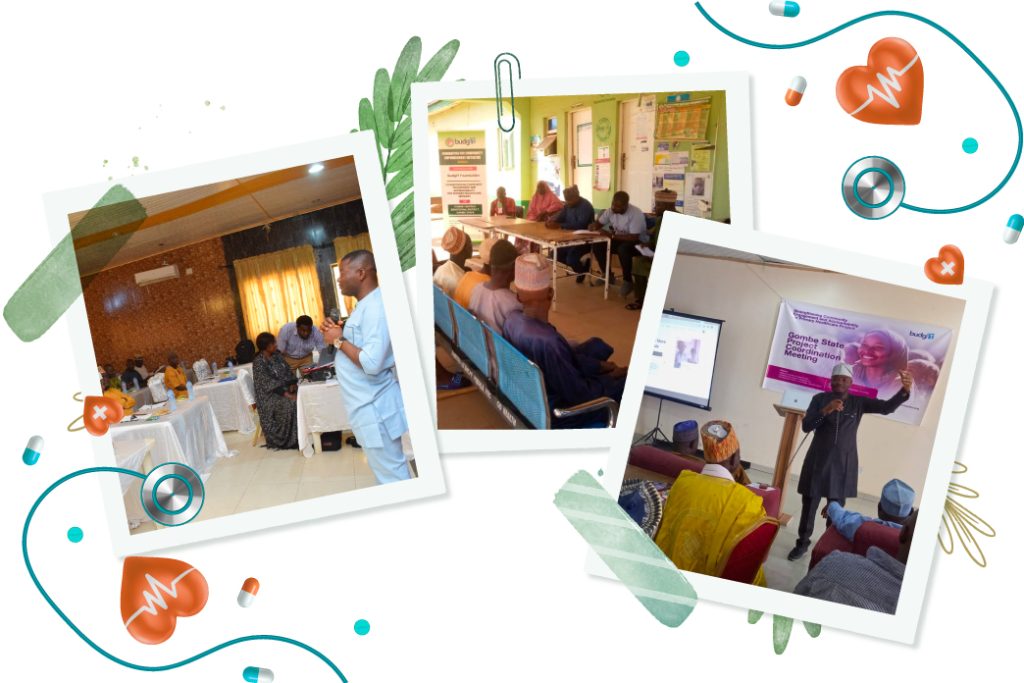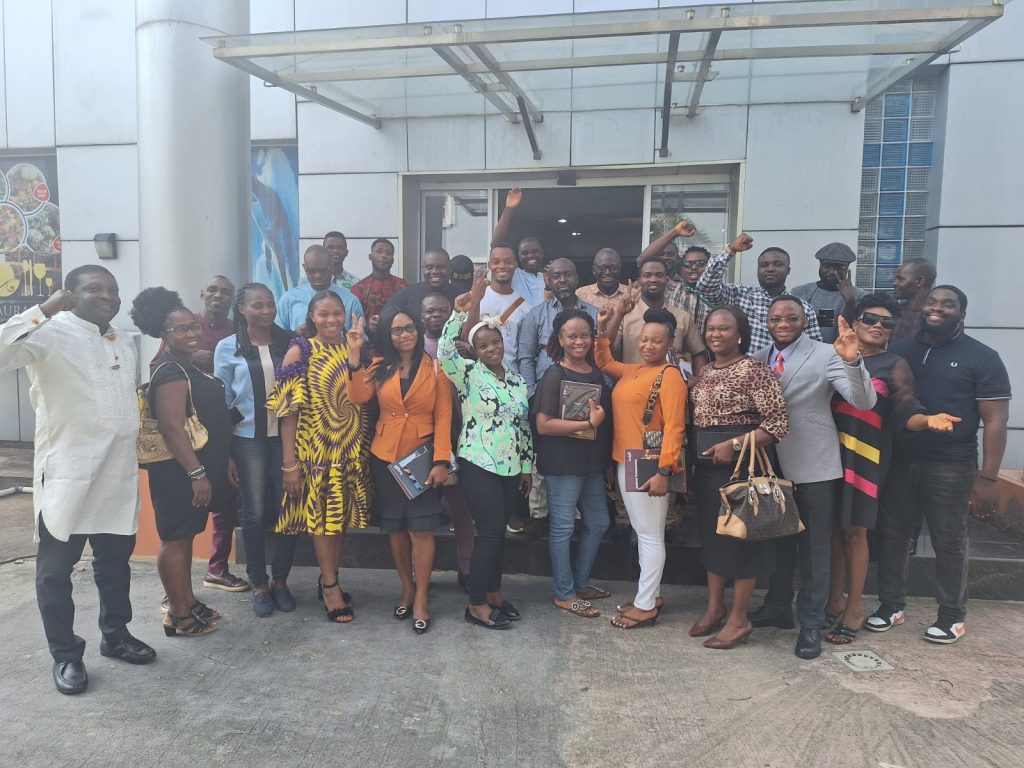BudgIT and Oxfam Host Workshop on the Cost of Corruption in the Extractive Sector
With the rising global trends and demands affecting the extractive sector and the increasing concern about the state of corruption in Nigeria’s extractive industry, BudgIT Foundation, with support from Oxfam, embarked on a one-day intensive workshop for CSOs (Civil Society Organizations), CBOs (Community-based Organizations), advocacy groups, investigative journalists and the media on the Cost of Corruption in the Extractive Sector. The workshop was held on November 23, 2023, in Port Harcourt, Rivers State.
The workshop, whose aim was to enlighten participants on the PIA (Petroleum Industry Act) specifications about the HCDT (Host Communities Development Fund) and its implementation so far, centered on two prominent areas of need, namely “HCDT Regulations and Implementation Guidelines” and “Emerging Issues in HCDT Implementation and the Way Forward.”
The conversations following these themes highlighted the need to understand the global trends driving the departure from the declining concept of ‘extractive’ toward terms like ‘natural resources governance and agroforestry.’ It advocated for understanding the peculiarities of the local environment and working with such a mindset to advance the industry’s goals while staying current on global changes and pivoting accordingly.
In the context of the Host Communities Development Trust, the crux of the workshop, it was discovered that many oil firms (Settlors) have yet to implement the HCDT regulations stipulated by the PIA two years after the act was enacted. As it stands, the effect of corruption within the extractive industry, whereby Settlors do not abide by the HCDT regulations and guidelines, and no one is sanctioned as appropriate, not only deprives the communities of their due compensation but also preys on substantial revenue that the government could realize from enforcing the stipulated sanctions on defaulting Settlors.

“Looking at the times, most countries are moving towards new revenue sources. The word ‘extractives’ is no longer selling as terms like natural resources governance and agroforestry have taken over.” – Henry Ushie, Program Coordinator, Oxfam
Henry Ushie noted that the corruption within the extractive’s value chain is grand style and is the biggest problem in the industry as the country is heavily reliant on resources from the sector. He elaborated on the global trends and conversations driving the extractive industry’s current shift and value chain, notably from the global north.
Henry encouraged that while stakeholders seek alternatives to what is globally obtainable, the local extractive industry must move at its own pace in adapting global changes to local needs, adding, “We may not necessarily move with the trend, looking at our peculiarity, but the question we’re also asking ourselves is what are the alternatives if no more extractives, why the urgency and why now and why is the global north driving it?”
Mfon Gabriel of the Wells of Science Foundation facilitated the two intensive sessions covering “HCDT Regulations and Implementation Guidelines” and “Emerging Issues in HCDT Implementation and the Way Forward.”
In the first session on “HCDT Regulations and Implementation Guidelines,” the workshop focused on the purpose of setting up the HCDT regulations, the powers of the NUPRC, who a host community is, the settlor’s responsibilities, conditions for incorporation and attending consequences for not incorporating, needs assessment, fund matrix and the dynamics for selecting the Trust Management Committee and Advisory Committee.
The second session on “Emerging Issues in HCDT Implementation and the Way Forward” covered HCDT milestones and timelines, incorporation status as of November 14, 2023, list of Settlors that have established their Trust, HCDT funding status as of November 14, 2023, emerging issues in HCDT implementation and the way forward.
Emerging Issues in HCDT Implementation
Issues of community awareness of the PIA provision, equal gender and people with disability inclusion in HCDT Trustee selection and appointment, unpublished accounts of Settlors, community indoctrination by unmotivated oil firms, who serve a host community delineation and settlement, and others lay credence to a need to review the PIA and its operating perimeters. Put succinctly, the emerging issues are:
- The first meeting was not held in many host communities
- Old guards, former Settlors’ employees, political and traditional elites still control and dominate HCDT boards
- Most Community Needs Assessment and Community Development Plans (CDP) have no community stakeholders’ input
- Timelines are not respected as stated in the Act and Regulation
- Unpublished accounts of Settlors
- Increased petitions and litigations between host communities and Settlors
- Less inclusion of women, youths, and PWDs in the Trust Structure
- Most deep offshore asset Settlors are yet to establish their Trust
- Merging several assets to establish a HCDTs
Recommendations and Way Forward
After the enlightening and engaging sessions, the participants offered the following recommendations:
- Clear Definition of Host Communities Coverage
As controversies surrounding what makes a host community (the criteria that grant that status), their exact benefits in the PIA, and the method of ascertaining such benefits, there is a need to clarify the parameters for identifying a Host Community in the PIA to remove endless back-and-forth and misgivings.
- Continuous Sensitization of Host Communities
As concerns about the indoctrination of host communities by ill-meaning characters continue to pose a challenge where they are made to believe the GMoU (Global Memorandum of Understanding) regime serves the same goal as the PIA, thereby preferring the former, there is the need to help host communities understand the PIA–HCDT dynamics and how it can benefit them and future generations.
Such reorientation will empower them to make informed decisions without being hoodwinked by dubious information meant to shortchange them from the provisions in the PIA. To achieve this, CSOs and CBOs should be incorporated into the host communities’ sensitization and implementation of community development plans.
- Inclusion of Women and People with Disabilities in the HCDT Trustees
While the inclusion of women and people with disabilities in the HCDT thus far is commendable in some communities, it remains a concern that this demography is often neglected or generally sidelined in the leadership selection process of Host Communities Trustee membership. The participants advocated for a change to this to create a balanced HCDT leadership that plays on inclusion and equality.
- Consult Communities in the HCDT Trustees Selection Process
Communities must be included in the process that produces the Trustees of the Trust, whereby no one is forced on them, and every step in the process is transparent, credible, and inclusive. The process must be collaborative, and every host community should know about and affirm the characters that must represent their interest in running the HCDT.
- Sanction Defaulting Settlors
With many Settlors defaulting on the PIA agreement and yet to set their Trust for the communities where they operate, the sanctions provided in the act and HCDT must be implemented to curb this corruption and guarantee that Host Communities are subsequently no longer deprived of their due benefits as the PIA–HCDT provides and that the government is not running at a loss by not bringing such defaulters to book (through the negligence of lawful sanctions as stipulated in the PIA).
- Host Communities Needs Assessment
There is a need to work with the prevailing needs of Host Communities to deliver the benefits of the HCDT intervention. Where communities are not consulted on pressing demands within their environment, the HCDT efforts become a waste of resources. Hence, before embarking on any HCDT project, a community’s needs assessment must first be done.
- Community Engagement, Literacy, and Media Involvement
As the participants noted, the greater number of Host Communities are not aware of the provisions of the PIA and the HCDT initiative to even know how to demand accountability and service delivery from Settlors. The media must play a significant role in bringing awareness to the local communities in oil-producing states to change this.
While social media can be helpful and engaging to the younger generation, media spaces, especially radio programs, were identified as the most impactful channel for informing the older generation, who are most often within those communities. The participants advocated for more radio programs that build awareness about the HCDT, as well as creative write-ups by media personnel.
Others
- Settlors and BOT to provide evidence—pictures, videos, and participants’ attendance with GPS to track location—for townhall meetings and community needs assessments of the HCDTs
- NUPRC to observe meetings between Settlors and host communities (public biddings)
- Inter-agency collaboration between CAC and NUPRC to disclose annual returns of upstream Settlors
- Disclose BOT, Management, and Advisory Committees members’ details
- Amend the HCDT constitution to provide for GESI
- Incorporate beneficial ownership and contract transparency principles in the implementation of Trust projects
- Due diligence on Fund Managers’ appointment
- Incorporate the role of CSOs and CBOs in host community sensitization and Community Development Plans implementation
While the extractive sector continues to deal with the rising shift in global trends and the local dynamics of which corruption plays a sting, civil society, advocacy groups, investigative journalists, and the media must keep the conversation ongoing and work in collaboration with communities to push for the enforcement of the HCDT while serving as a sounding board to the government on sanctioning defaulting Settlors.
In the same line of thought, communities must become their own best advocates, pushing for the due delivery of benefits they deserve and not seeing such milestones as kind gestures from leadership.
Engr. Adejoke Akinbode, BudgIT Head of Extractives, urged the participants to get the communities involved in their campaign to empower them to take ownership of the HCDT provision and escalate it in the absence of execution from Settlors.



